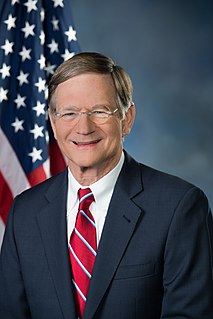A Quote by Sharan Burrow
South Carolina is a 'right to work' state - a misnomer of a phrase, as the laws limits union representation of workers. It does does not guarantee workers a job or fair wages and conditions.
Related Quotes
Any reasonable economist will tell you that it's nearly impossible to isolate the impact of right-to-work laws on a state's job growth. A multitude of other factors intervene. However, one thing the numbers can show is that right-to-work laws have a negative effect on the wages of workers in that state.
The whole time I was a union leader, we had to put up with John Howard and Tony Abbott attacking workers' conditions. I'm proud of being a moderate trade union official, working co-operatively between employees and employers. I'm interested in better wages for workers, better safety, job security, and, profitable companies, because I understand that if you get co-operation in the workplace, everyone wins.
The competitive pressure to produce, buy, and sell to our global multi-national companies is so intense that contractors in supply chains are motivated to pay low wages, intensify exploitative conditions, keep workers fearful with insecure work contracts, or simply sack workers who have formed a union to fight back.
Apparently, union bosses are so distraught about declining enrollments they will stoop to exploiting illegal workers. There is no doubt that this would hurt American workers, who would suddenly face a flooded job market full of cheap foreign labor. It would depress the wages of the American workers and cost them jobs.
There are vivid memories from my childhood-what we had to go through because of low wages and the conditions, basically because there was no union. I suppose if I wanted to be fair I could say that I'm trying to settle a personal score. I could dramatize it by saying that I want to bring social justice to farm workers. But the truth is that I went through a lot of hell, and a lot of people did. If we can even the score a little for the workers then we are doing something. Besides, I don't know any other work I like to do better than this. I really don't.
Union membership is not the sole guarantor of job security and a living wage, but nonunion factory workers do not enjoy the same protections as union workers. They're subject to exploitation, underpayment and lower standards of workplace safety - which is also often the case for manufacturing workers outside the United States.
We should strengthen our immigration laws to prevent the importation of foreign wages and working conditions. We should make it illegal for employers to lay off Americans and then fill their jobs by bringing in workers from overseas. Any U.S. employer who wishes to hire from abroad - even for temporary jobs - should have to recruit U.S. workers first. And we should end the unskilled immigration that competes with young Americans just entering the job market.
There are vivid memories from my childhood - what we had to go through because of low wages and the conditions, basically because there was no union. I suppose, if I wanted to be fair, I could say that I'm trying to settle a personal score. I could dramatize it by saying that I want to bring social justice to farm workers.
One of Trump's reforms is to limit the time that workers can use on the job at taxpayer expense working on union activities. What does this have to do with public service? So taxpayers have to pay overcompensated federal employees while they work on union activities so they can get even more taxpayer money.




































